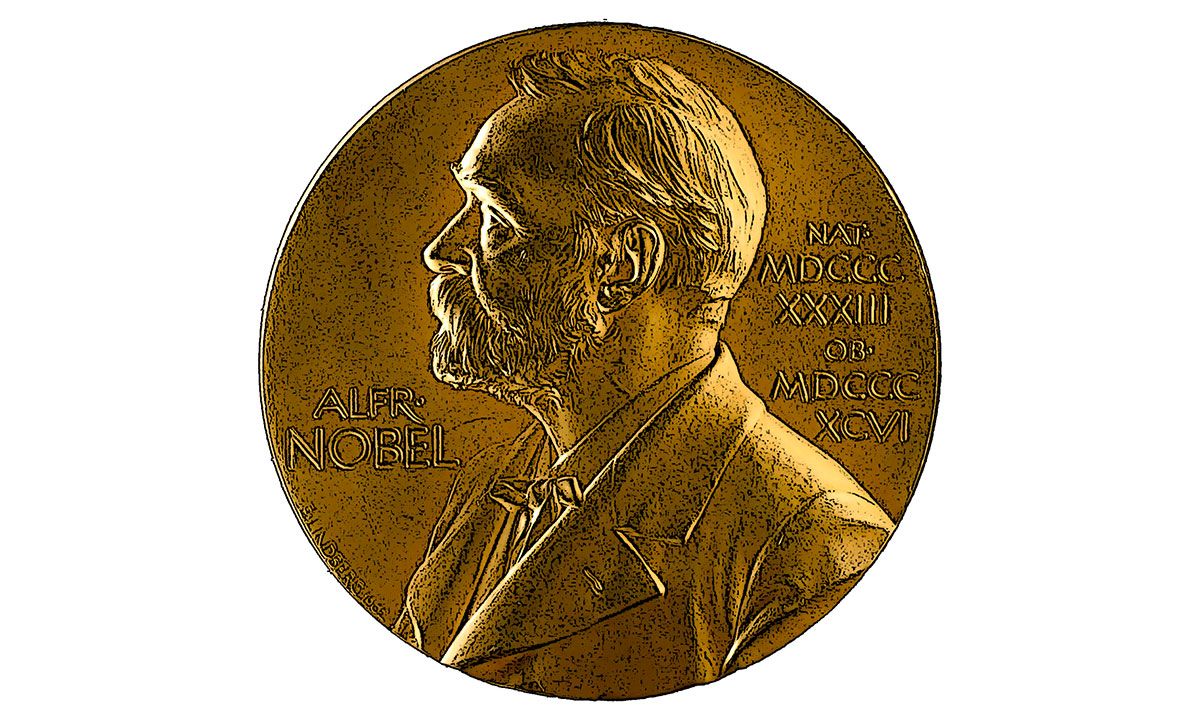
The 2024 Nobel Prizes were announced Oct. 7-14. The Nobel Prize is an international award administered by the Nobel Foundation in Stockholm, Sweden, and based on the fortune of Alfred Nobel, Swedish inventor and entrepreneur. In 1968, Sveriges Riksbank established the Sveriges Riksbank Prize in Economic Sciences in Memory of Alfred Nobel.
The Nobel Prize in Physics was awarded for work with technology related to artificial intelligence. American John Hopfield created an associative memory that can store and reconstruct images and other types of patterns in data. Englishman Geoffrey Hinton invented a method that can autonomously find properties in data, and so perform tasks such as identifying specific elements in pictures.
“When we talk about artificial intelligence, we often mean machine learning using artificial neural networks,” the Nobels website states. “This technology was originally inspired by the structure of the brain. In an artificial neural network, the brain’s neurons are represented by nodes that have different values. These nodes influence each other through connections that can be likened to synapses and which can be made stronger or weaker. The network is trained, for example by developing stronger connections between nodes with simultaneously high values. This year’s laureates have conducted important work with artificial neural networks from the 1980s onward.”
The Nobel Prize in Chemistry 2024 recognizes work relating to proteins. American David Baker has succeeded with the almost impossible feat of building entirely new kinds of proteins. Englishman Demis Hassabis and American John Jumper have developed an AI model to solve a 50-year-old problem: predicting proteins’ complex structures.
“The diversity of life testifies to proteins’ amazing capacity as chemical tools, the Nobels website states. They control and drive all the chemical reactions that together are the basis of life. Proteins also function as hormones, signal substances, antibodies and the building blocks of different tissues.
“One of the discoveries being recognized this year concerns the construction of spectacular proteins. The other is about fulfilling a 50-year-old dream: predicting protein structures from their amino acid sequences. Both of these discoveries open up vast possibilities,” says Heiner Linke, Chair of the Nobel Committee for Chemistry.
The Nobel Prize in Physiology or Medicine was shared by two scientists for their discovery of a fundamental principle governing how gene activity is regulated.
Americans Victor Ambros and Gary Ruvkun were interested in how different cell types develop. They discovered microRNA, a new class of tiny RNA molecules that play a crucial role in gene regulation. MicroRNAs are proving to be fundamentally important for how organisms develop and function, the Nobel website states.
This year’s Nobel Prize focuses on the discovery of a vital regulatory mechanism used in cells to control gene activity. Genetic information flows from DNA to messenger RNA (mRNA), via a process called transcription, and then on to the cellular machinery for protein production. There, mRNAs are translated so that proteins are made according to the genetic instructions stored in DNA. Since the mid-20th century, several of the most fundamental scientific discoveries have explained how these processes work.
The Nobel Prize in Literature was awarded to the South Korean author Han Kang, “for her intense poetic prose that confronts historical traumas and exposes the fragility of human life.”
Han rose to international prominence for her novel “The Vegetarian,” which became the first Korean language novel to win the International Booker Prize for fiction in 2016.
Han is known for her experimental and often disturbing stories that explore human traumas and violence and incorporate the brutal moments of South Korea’s modern history. She is the country’s first writer to win the preeminent award in world literature as well as the first Asian woman to win the award.
The Nobel Peace Prize was awarded to the Japanese organization Nihon Hidankyo. This grassroots movement of atomic bomb survivors from Hiroshima and Nagasaki, also known as Hibakusha, received the Peace Prize for its efforts to achieve a world free of nuclear weapons and for demonstrating through witness testimony that nuclear weapons must never be used again, the Nobel website states.
In response to the atomic bomb attacks of August 1945, a global movement arose whose members have worked tirelessly to raise awareness about the catastrophic humanitarian consequences of using nuclear weapons. Gradually, a powerful international norm developed, stigmatizing the use of nuclear weapons as morally unacceptable. This norm has become known as “the nuclear taboo”.
The testimony of the Hibakusha is unique in this larger context.
“These historical witnesses have helped to generate and consolidate widespread opposition to nuclear weapons around the world by drawing on personal stories, creating educational campaigns based on their own experience, and issuing urgent warnings against the spread and use of nuclear weapons,” the Nobel website states. “The Hibakusha help us to describe the indescribable, to think the unthinkable, and to somehow grasp the incomprehensible pain and suffering caused by nuclear weapons.
The Nobel Prize in Economic Sciences is awarded to Daron Acemoglu, Simon Johnson and James Robinson for demonstrating the importance of societal institutions for a country’s prosperity. Societies with a poor rule of law and institutions that exploit the population do not generate growth or change for the better. The laureates’ research helps us understand why.
When Europeans colonized large parts of the globe, the institutions in those societies changed. The laureates have shown that one explanation for differences in countries’ prosperity is the societal institutions that were introduced during colonization.
“Reducing the vast differences in income between countries is one of our time’s greatest challenges. The laureates have demonstrated the importance of societal institutions for achieving this,” Jakob Svensson, Chair of the Committee for the Prize in Economic Sciences, said.
